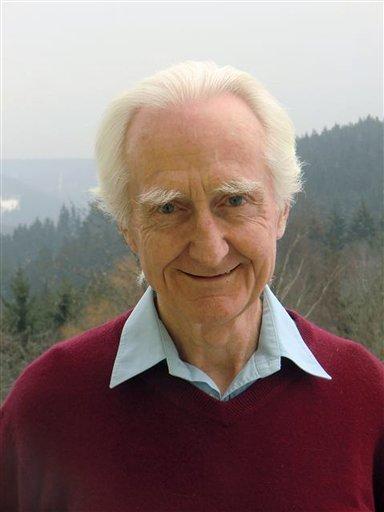Priest Kidnapped by Junta: Not Denounced by Pope
By Geir Moulson
BERLIN — A Jesuit priest who was kidnapped by the Argentine military junta in the 1970s said Wednesday that he and a fellow cleric weren't denounced by the future Pope Francis, then leader of Argentina's Jesuits. The Rev. Francisco Jalics, a Hungarian native who now lives in a German monastery, said in a statement that he was following up on comments about the case last week because he had received a lot of questions and "some commentaries imply the opposite of what I meant." He did not elaborate. Jalics and another priest, Orlando Yorio, were kidnapped in 1976. Jorge Mario Bergoglio, now the pontiff, has said he told the priests to give up their work in slums for their own safety, and they refused. Yorio, who is now dead, later accused Bergoglio of effectively delivering them to the death squads by declining to publicly endorse their work. In a statement last Friday, Jalics said that and Bergoglio had long since reconciled. He said they "hugged solemnly" at a meeting in 2000, and that he considered the matter closed. Jalics said in that statement, posted on the German Jesuits' website, that he "cannot comment on the role of Father Bergoglio in these events." He elaborated on Wednesday, saying: "The fact is: Orlando Yorio and I were not denounced by Father Bergoglio." Jalics said "false information was spread" at the time that he and Yorio had gone to the slums because they were part of a guerrilla movement - and he suspects those rumors were the reason why the priests weren't freed immediately. "I myself was once inclined to believe that we were the victims of a denunciation," Jalics said. But "at the end of the 90s, after numerous conversations, it became clear to me that this suspicion was unfounded. It is therefore wrong to assert that our capture took place at the initiative of Father Bergoglio." Nobody disputes that Bergoglio, like most other Argentines, failed to openly confront Argentina's 1976-1983 military junta as it kidnapped and killed thousands of people in a "dirty war" to eliminate opponents. But opinions differ on how much responsibility the new pope personally deserves for the Argentine Catholic Church's dark history of supporting the murderous dictatorship. The new pope's authorized biographer, Sergio Rubin, argues that the Catholic Church in general failed to confront the junta, and Argentine human rights activists have noted that Bergoglio never collaborated with the dictatorship. The Vatican spokesman, the Rev. Federico Lombardi, noted Friday that Argentine courts had never accused Bergoglio of any crime, that he had denied all accusations against him and that on the contrary "there have been many declarations demonstrating how much Bergoglio did to protect many persons at the time." Jalics is currently out of Germany and wasn't immediately reachable for comment.
|
.
Any original material on these pages is copyright © BishopAccountability.org 2004. Reproduce freely with attribution.
